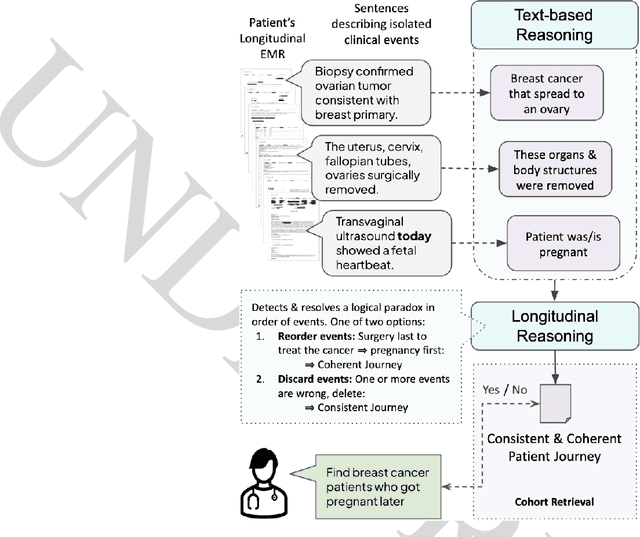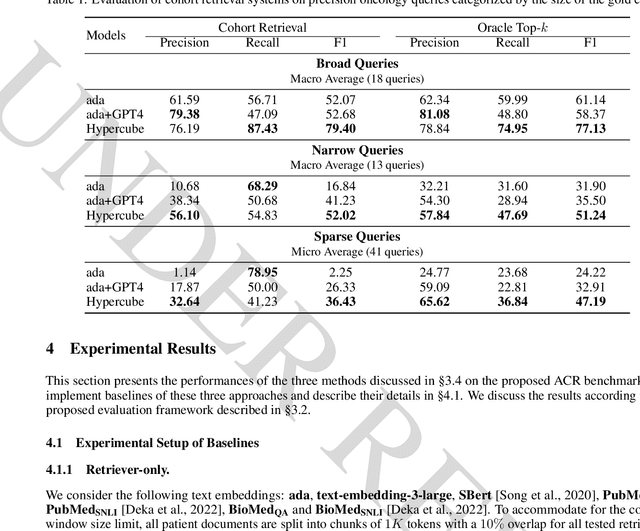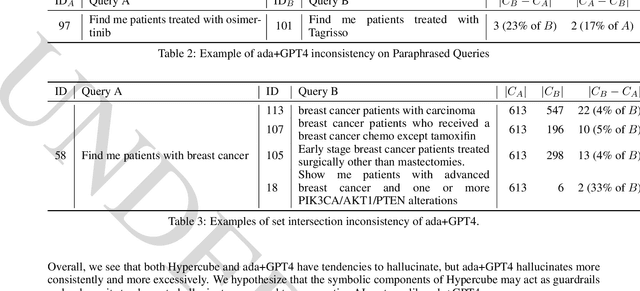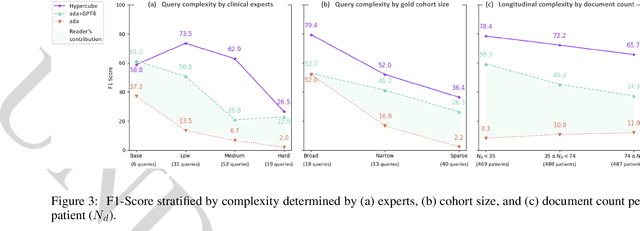ACR: A Benchmark for Automatic Cohort Retrieval
Paper and Code
Jun 20, 2024



Identifying patient cohorts is fundamental to numerous healthcare tasks, including clinical trial recruitment and retrospective studies. Current cohort retrieval methods in healthcare organizations rely on automated queries of structured data combined with manual curation, which are time-consuming, labor-intensive, and often yield low-quality results. Recent advancements in large language models (LLMs) and information retrieval (IR) offer promising avenues to revolutionize these systems. Major challenges include managing extensive eligibility criteria and handling the longitudinal nature of unstructured Electronic Medical Records (EMRs) while ensuring that the solution remains cost-effective for real-world application. This paper introduces a new task, Automatic Cohort Retrieval (ACR), and evaluates the performance of LLMs and commercial, domain-specific neuro-symbolic approaches. We provide a benchmark task, a query dataset, an EMR dataset, and an evaluation framework. Our findings underscore the necessity for efficient, high-quality ACR systems capable of longitudinal reasoning across extensive patient databases.
 Add to Chrome
Add to Chrome Add to Firefox
Add to Firefox Add to Edge
Add to Edge